When we bought Barefoot Gal, I got many questions about how to shop for a boat. Especially since we got it done so quickly.S everal emails mentioned feeling overwhelmed. And worrying about making the wrong choice and regretting it.
And yes, we were quick. Within three weeks and a day, we decided to buy a boat and closed on Barefoot Gal.
Here’s how we did it.
The Steps in Shopping For a Boat
Boat buying can be seen as a series of tasks. Some involve list making. Others involve research. And finally, you start looking at boats.
Planning Ahead
- Decide where you want to use the boat. How do you want to use it? You have to know where you intend to go before choosing a boat. Even a vague “around the world” is a start.
- Research your cruising plans. Is draft an issue? Bridge height? Ferocious seas? Light winds? Cold or hot weather? Cruising guides help. Blogs and vlogs are also good resources. Review those by people cruising where you want to travel. If you go through their old content, you’ll see their complaints or regrets. You’ll want to review about a half dozen to know if a feature wish list is crucial or one person’s idiosyncrasy.
- Think about personal needs: cabins for kids or guests, single-handing, physical limitations of the crew.
- Develop a list of boat makes and models that would meet your needs.
- Develop your budget, both for the initial purchase and upgrades and for ongoing expenses. Be sure to include a reserve for unexpected expenses — there always are some! Figure out if you’ll need financing. If so, get pre-approved so you know how much you really have to work with.
- Use your budget to develop a shortlist of boat models, then research them as completely as possible. Cruising and boating magazines are a good start. But also dig out the owners’ groups, online forums, and owners’ blogs. Blogs are a great source of real info with no sugar coating. YouTube is also a great place to get info both of fun times aboard and of many maintenance chores.
- At this point, you may have narrowed things down to just one model, or a handful. We developed a list of features we wanted. Marking the must-haves helped us compare individual boats.
Before Looking
- Start looking at boat listings — YachtWorld, Sailboat Listings, Craigslist and any owners groups are good places to look. Fill in your chart or spreadsheet with as much info on each boat as you can. Call owners and brokers to get the remaining info.
- For any critical gear that a particular boat is missing, try to come up with an estimate of what it would cost you to put that on the boat or repair what’s there. It’s tough. But you’re trying to figure out how much each boat will cost when outfitted as you’d like it. But don’t add in the cost of something that’s not important to you just because one boat has it. For example, we didn’t plan to spend much time at a dock and hence we didn’t care about air conditioning. We wouldn’t add it to a boat that didn’t have it.
- Some boats are going to start looking better than others. Make plans to visit these.
- Investigate insurance. Get quotes on one or more of your top candidates, making some assumptions about the value (or just liability). You’ll learn a lot during this process. Sometimes finding insurance that fits with your dream is the hardest piece of the puzzle.
- Learn at least the broad outlines of how the transaction will take place and any financing or insurance requirements.
- We listed things to look at on each boat so that we could make notes and compare them afterward. It’s amazing how they all become a blur. There’s a copy of our list (and lots of other things) in my FREE Documents for Boat Buyers and Owners.
Actually Shopping
- Look at boats. I printed copies of our list and took a clipboard. Write the answers to each item as we looked at the boat. Get as much detail as possible on each item, particularly if it’s a boat that becomes a strong candidate. Sometimes you know within 5 minutes you’ll never make an offer on a particular boat. While it’s still good to take a serious look at it to compare to the others, you may not want to spend too much time on it.
- When you think you’ve found the right boat, make an offer. How this is done will depend on whether you’re working with a broker or the seller, whether there is financing and the boat’s location.
- If your offer is accepted, schedule a survey and sea trial.
- Review survey report. Possibly renegotiate the purchase price.
- Closing — again, this depends on who is involved, whether it’s state titled or CG documented, whether there is financing, whether you’re comfortable handling the closing or want a title agent, etc.
Shopping for a Boat: The Reality
Whew! Seventeen items, some requiring detailed research. Did we really do it all in 22 days?
Background Research
Not really. Dave and I had talked on and off for several years about getting another boat. For a variety of reasons, though, we didn’t.
During that time, though, we pretty well decided that if we did get another boat, we’d be cruising the Keys and perhaps the Bahamas. And with that in mind, we began researching necessary and desirable features. First was a large enough holding tank. It’s a no-discharge zone and we didn’t want to be tied to pump-outs every few days. And while boats with 6′ draft certainly transit the Keys, we learned that the shallower the draft the more out-of-the-way places we’d be able to go. That was very important to us. Bridge clearance can also be an issue in Florida. Since we’re not getting any younger (at the time, Dave was 76; I was 54), smaller sails and a lighter boat are preferable. I wanted a good work area for writing. Good ventilation was key, too, as was a boat that would sail and motor well.
We also figured out what we could afford for a boat and how we’d pay for it. On trips to Florida, we looked at boats, storage yards, cruising locales, mooring fields and marinas. All just theoretical, of course. We weren’t really planning to buy another boat and go cruising. But we kept notes and talked about how we’d do it. All just hypothetically.
Getting Serious
Consequently, when we decided we were going to buy another boat, we’d already done the first five steps and mentally narrowed down the list to a handful of small catamaran models. Dave and I both threw ourselves into reading everything we could find about the different ones that were within our budget. And within a few days, we concluded that the Gemini was our first choice. TIP: If there’s more than one person researching and you’re using different computers/tablets, Google Chrome allows you to bookmark something on one and it immediately syncs to the other automatically. Make sure you’re logged into the same account on both.
From there, I start looking at Geminis for sale in Florida. I checked out YachtWorld, SailboatListings, and Craigslist, in addition to the Gemini Owners Group and general Google searches. We called, got details, and set up a spreadsheet to compare the details. Admittedly, it helped a lot that we had previously cruised.Wwe had a much better idea of what was important to us. Our final list had 5 boats that looked like possibilities. We were able to reach the sellers or brokers on only three of those.
I checked with BoatUS on insurance, getting quotes on two that were the most different. I knew that the details would change. But this gave us a ballpark estimate of the cost and availability of insurance.
Looking at Boats
Just six days after deciding we were serious about this, we threw some clothing, a computer and dog Paz in the car and headed to Florida for the great boat-buying road trip. The first boat we looked at showed us that we were right to be looking at Geminis, although it wasn’t the boat for us. On to boat number 2, which we liked and made an offer on. That deal disintegrated when the survey showed some structural issues (read more about surveys and deal killers). That was two weeks to the day from deciding to buy a boat.
That evening, I was able to reach one of the sellers I hadn’t talked to before. His boat had appealed to us the most on paper and as I talked to the owner, it sounded even better. We made plans to see the boat in two days. That gave us time to drive there and also a bit of down time to regroup after the failed purchase.
Buying the Boat
We spent over four hours on the boat, armed with our list of questions. Then Dave and I went for a late lunch and talked the boat over. We compared it to the other two boats we hadn’t yet looked at and concluded yes, it really was a better boat for what we wanted. Tthe others had different features, but some of those — air conditioning for example — weren’t things that were important to us). I ran a quick check on the boat’s documentation number to give ourselves a bit of assurance that we were dealing with the owner. Then we made an offer. There was no broker involved, so it was just a case of discussing it with the seller. After going back and forth a few times, we came to a deal we could all live with.
I next called for the survey. It was Thursday and the surveyor wasn’t available until Tuesday (three weeks from the “decision day”). With what we’d learned during the first survey, we felt confident this boat would pass. We used the time to arrange for summer storage, buy the supplies we’d need to ready her for storage (but saved those receipts!), and even went for a day of sailing in Charlotte Harbor with friends. Frankly, having a few days of downtime to plan was exactly what we needed.
On the way to Florida, I had researched how to make sure title was good and how to transfer title for a documented vessel and the associated Florida regulations. But I double-checked everything again during this time — and cursed myself for not having a printer with me! I found a UPS Store with internet, printers, copiers, a notary and a fax that could serve as the office for closing and contacted our bank to make sure I had the needed forms for a wire transfer of the purchase price.
On Tuesday, we had the survey and at least one of us was present the whole time. The did the sea trial on the way to the haul out. And we planned to leave the boat at that yard if all went well, so I had to drive the car so that everyone had a way to get back to their cars at the seller’s home. Consequently, I missed the sea trial but Dave knows more about the diesel and other mechanical systems than I do, so he was the logical one to be on the boat. We didn’t get the full written survey that day. But the surveyor did discuss the boat in detail with us throughout the day and summarized his findings at the end. The survey only found minor, repairable issues and we accepted the boat.
The Closing
We set the closing for the next morning. I went back to the motel to prepare the documents for closing. The seller had the Certificate of Documentation and a Bill of Sale, too. We met and went to the UPS Store, where we signed, notarized and copied documents and faxed off the wire transfer request. Then I faxed off the Coast Guard “exchange of documentation” forms (what most of us would call the transfer of ownership). Next stop was the county courthouse, where we did the Florida registration at the nicest DMV office I’ve ever been in. Not only did they allow Paz in the office, they gave her treats! Lastly, I called BoatUS and purchased the insurance.
Hopefully, this complicated process is clearer to you. You may not work as quickly as we did. But the longer you have to shop for a boat, the easier it will be.
Read Next

Carolyn Shearlock has lived aboard full-time for 17 years, splitting her time between a Tayana 37 monohull and a Gemini 105 catamaran. She’s cruised over 14,000 miles, from Pacific Mexico and Central America to Florida and the Bahamas, gaining firsthand experience with the joys and challenges of life on the water.
Through The Boat Galley, Carolyn has helped thousands of people explore, prepare for, and enjoy life afloat. She shares her expertise as an instructor at Cruisers University, in leading boating publications, and through her bestselling book, The Boat Galley Cookbook. She is passionate about helping others embark on their liveaboard journey—making life on the water simpler, safer, and more enjoyable.
Here’s your “Quick Start” to everything you need to know when living on a boat:
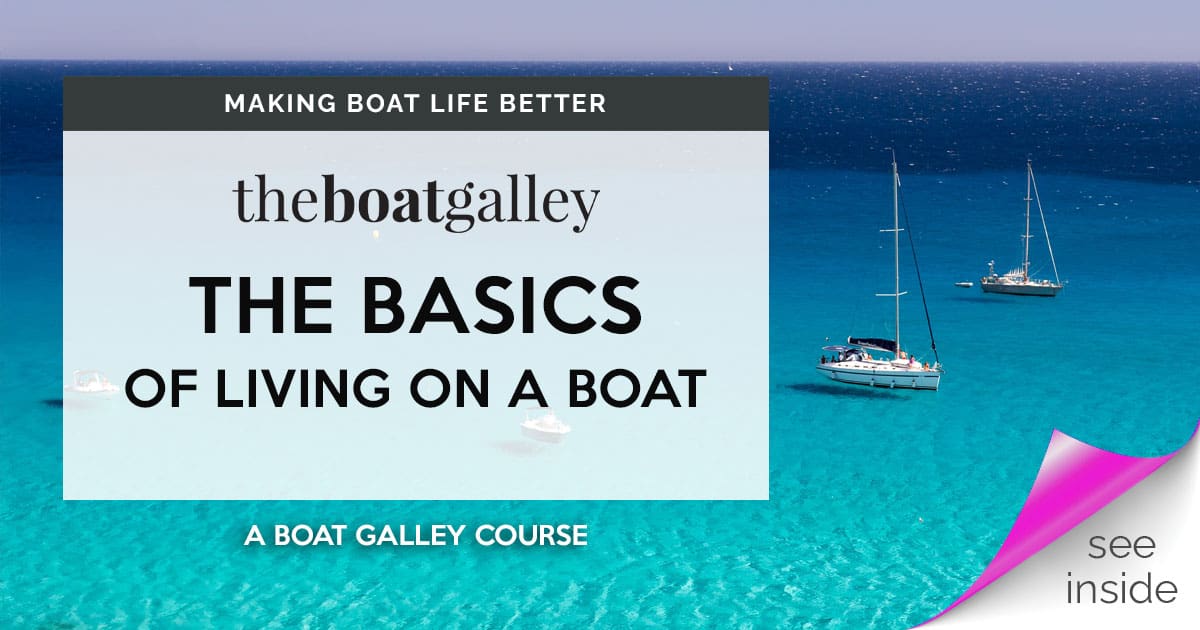
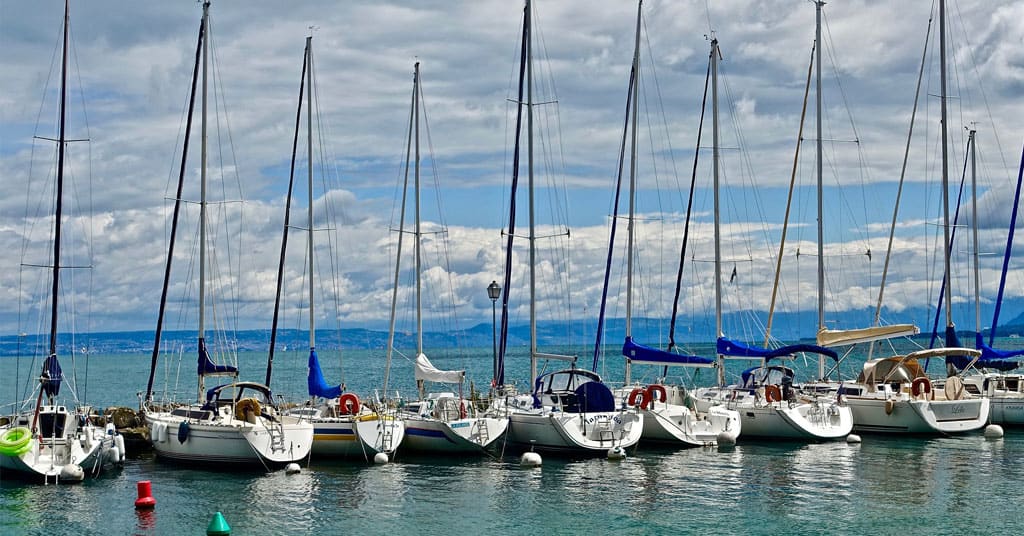
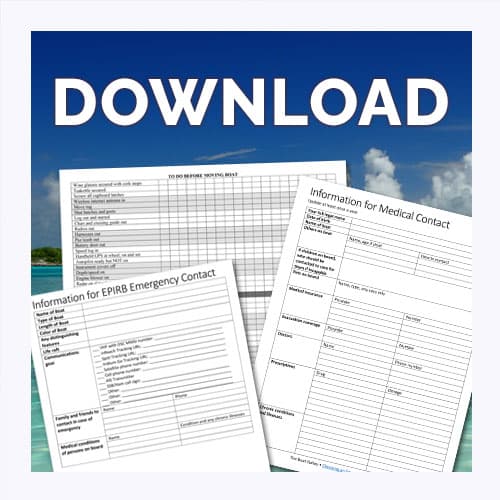


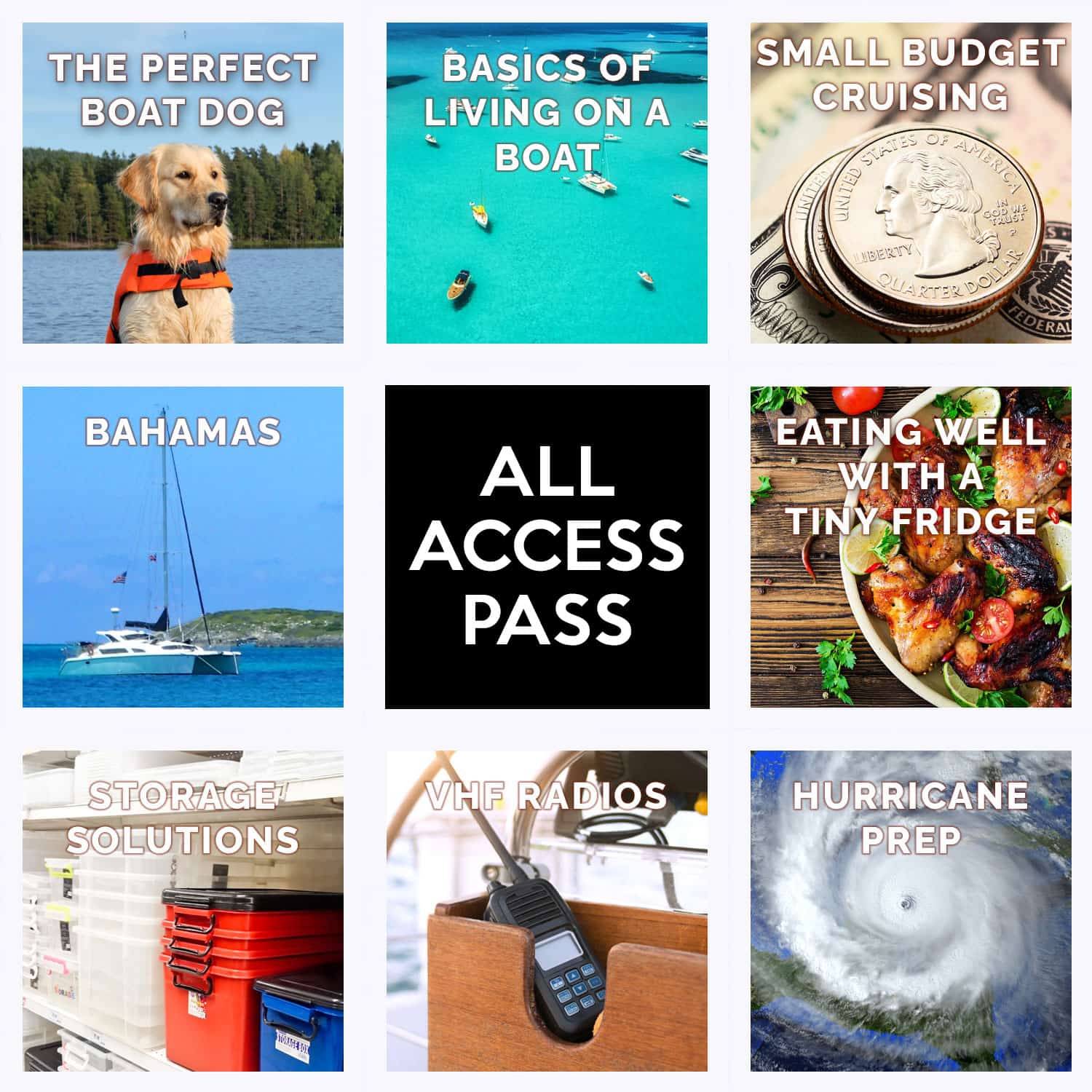
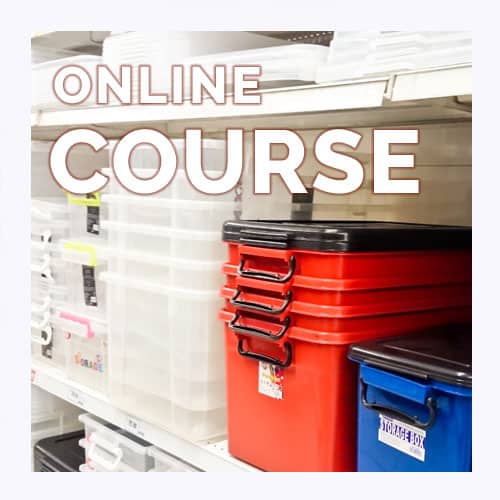

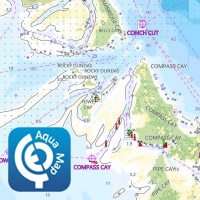
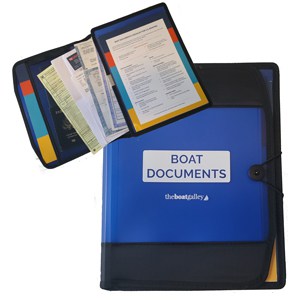

The Boat Galley says
You can do it on almost any budget, it’s just a matter of making choices that fit within the budget and being willing to do the work and make the tough decisions to be able to stay within the budget. And there are ways to earn money while cruising, even if it’s just $100 here or there, which can be a little treat here and there.
The Boat Galley says
If you’re on a tight buget, I think one of the keys is to stay as simple as possible with the boat and systems, so you don’t spend too much on keeping her up (repairs, parts, etc.). And smaller boats take less expensive parts and less work on your part if you’re going to DIY.
Carolyn Shearlock says
I’m thrilled for you! Our first charter (and a subsequent one, too) was on a Hunter 430. Great boats, nice layout! So happy to have you as part of The Boat Galley!
Carolyn Shearlock says
Estelle — You had a big impact on our decision, probably without you even knowing it! Tons of great info on your web site, and talking with you at the boat shows played a part, too! -Carolyn
Carolyn Shearlock says
I think it’s sort of like buying a house. Everyone wants different things and has different priorities. Things that don’t bother one person will really bug someone else. One person may be just fine without a certain piece of gear — either it’s not on the boat, or it’s broken — whereas someone else may really want it.
Also, like a house, the elements are constantly trying to break things on a boat — even if it’s just sitting there. It takes constant attention to fixing little things before they become big things. And, again like some houses, some haven’t been maintained well over the years either due to the health of the owner, neglect, lack of financial resources, or whatever.
The good news is that yes, you can find boats out there in absolutely fantastic condition. Our first cruising boat was one of those, despite being 20 years old. We really could just move aboard and start using her. Now, over time, we had to do our own ongoing maintenance and we found some things we wanted to change. So if you look hard, you may be able to find a little gem.
Carolyn Shearlock says
I have not cruised in Europe so I can’t speak to specifics, but I know several people who have outboards as their motor. How much use they are on open water depends on the horsepower and other specs.
Two things to think about with an outboard, however: you’ll be having more gasoline aboard instead of diesel fuel — and gas carries more of an explosion risk. Second, realize that there is still quite a bit of maintenance and repair knowledge needed with an outboard.
Stuart Dutton says
I’m sure we are! I’ll be glad when we’re in a position to look more seriously.
Carolyn Shearlock says
Yes, you normally have to have an accepted offer before you have a sea trial. HOWEVER, you can reject the boat for ANY reason after the sea trial. We spent four hours just on the boat at the dock, where we were able to run most systems (engine, electronics, refrig was cold, etc.). Otherwise, people feat they’d be giving free boat rides to people who had no intention of actually buying a boat but just wanted an afternoon on the water.
Susan Brown Osterlund says
Thanks so muc
Beth says
We were completely new to boating when we started looking for a boat. So we found a good broker and all three of us (my husband and I and our broker) did a ton of research, both online and in person, scheduling visits on a number of different boats. That would be my only addition to the steps you took – working with a broker definitely helped us feel more confident as we progressed through our boat-buying process!